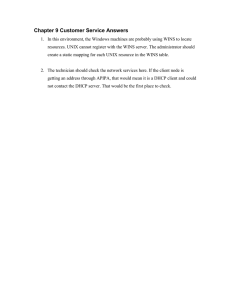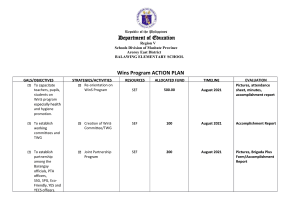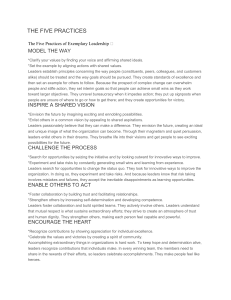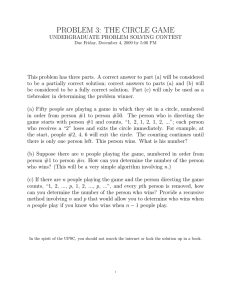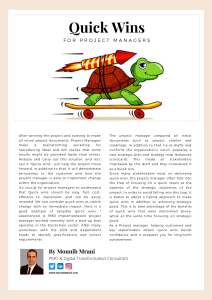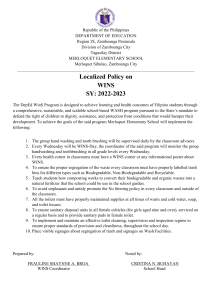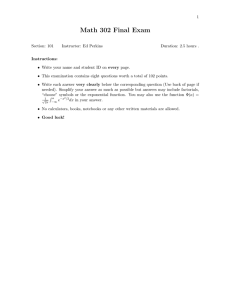Challenge the Process
advertisement
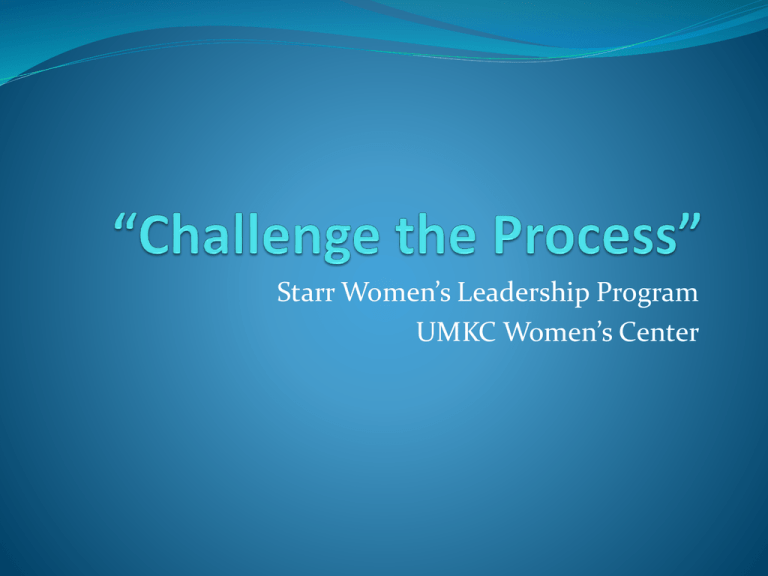
Starr Women’s Leadership Program UMKC Women’s Center (1) Search for Opportunities” (2) Experiment and Take Risks Look around for ways to challenge and develop your skills and abilities. Look for ways to try out new ideas and methods. Make sure you set goals and make specific plans for the projects you undertake. Take initiative in experimenting with way you can do things in your group. What is your “Personal Best?” We can’t get extraordinary things done in groups by keeping things the way they are. One of the practices of a leader is to Challenge the Process—to change business as usual. What percentage of new ideas that have been implemented were your ideas—they came out of your own head? If you didn’t invent the ideas, then who did? Getting extraordinary things done is more about incremental improvements and not huge onetime transformations. It’s about “small wins” or “little victories.” Implementing new ideas is like experiments. You try something, fail, and then learn from the mistakes. The best leaders are the best learners—and the best creators of a learning environment. List three (3) “small wins” for your group Leaders that “Experiment and Take Risks” constantly generate small wins and they learn from mistakes . “Small wins” build confidence, and make it easier for others to to say “yes”. Leaders that “Challenge the Process” seek innovative ways to change, grow and improve. They “Experiment and Take Risks” by constantly questioning how things are done in their organizations. They identify processes that do not work, and take action to fit it. Use “outsight”—the ability of leaders to look outside of themselves and their experiences. Listen, look in strange places, immerse yourself in different experiences, and use diversity of people to expand your imagination. Read widely about other leaders and adapt their strategies. Set goals that are achievable. Tell people what the key milestones are so that you and they can easily see progress. Take a “three month” audit of your group to see where you are and where you are going. Correct course to stay on target. Keep a journal of your creative ideas. Schedule brainstorming sessions for your group, and avoid any behaviors that extinguish new ideas (“fire-hosing”). Celebrate your wins—small or large….!
